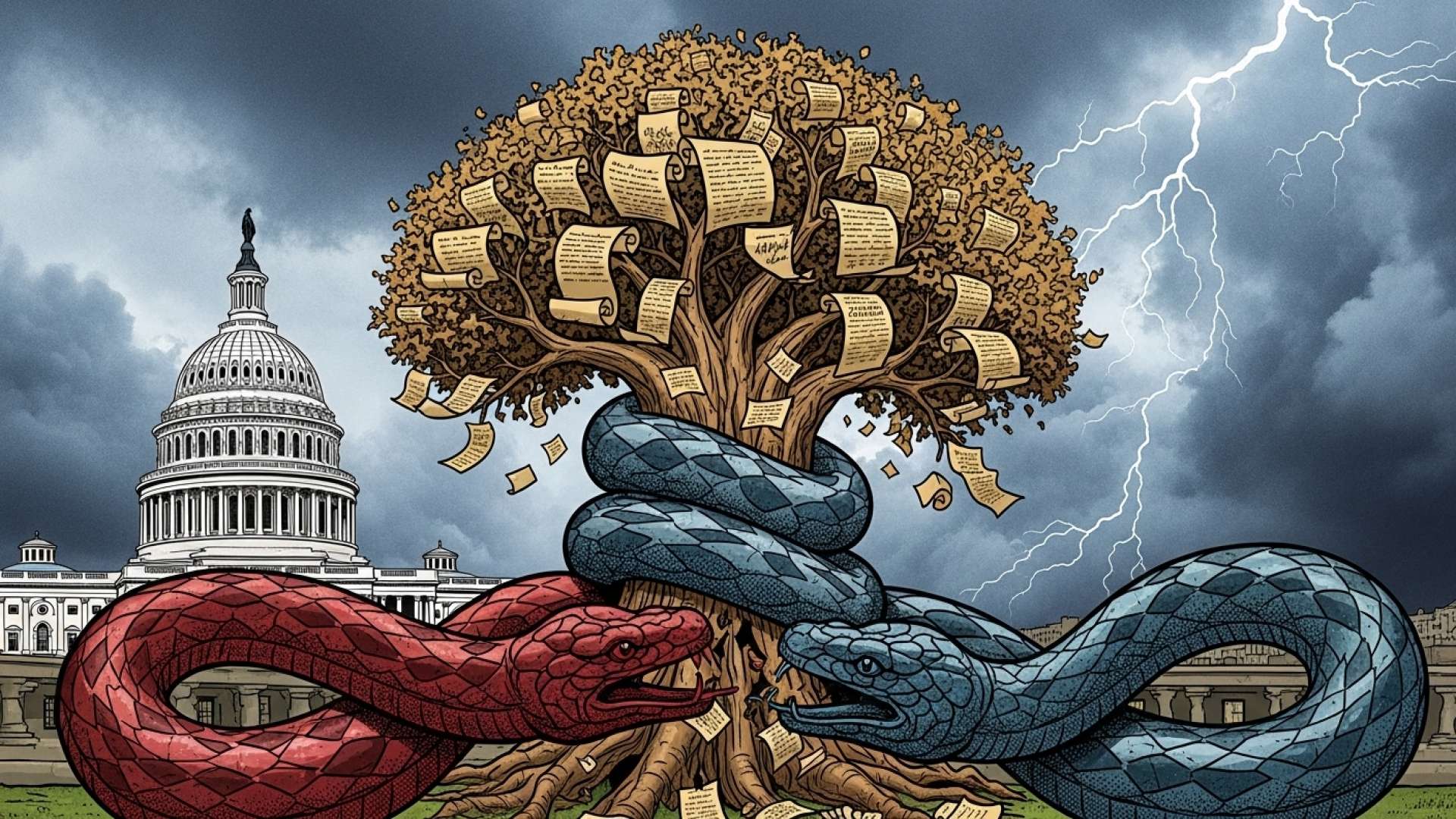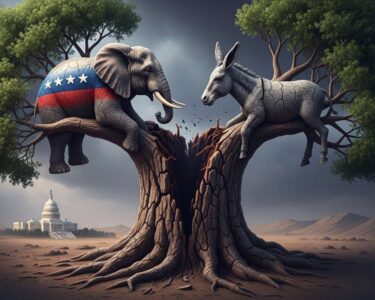San José, Costa Rica — WASHINGTON D.C. – The United States federal government shutdown is set to extend into next week after a critical budget vote failed in the Senate on Friday, underscoring the deep partisan chasm that has paralyzed the nation’s capital. With no agreement in sight, the prospect of a weekend session has all but evaporated, leaving approximately 750,000 federal workers in limbo and critical government functions on hold.
The impasse centers on a provisional spending bill designed to fund the government through November 21. Despite holding a 53-seat majority in the 100-seat chamber, Senate Republicans were unable to muster the 60 votes required for passage. The failure to secure sufficient support from the Democratic minority has ensured that federal agencies, which officially ran out of funding on Wednesday at the end of the fiscal year, will remain shuttered.
To better understand the potential legal and commercial ramifications for Costa Rica stemming from a US government shutdown, TicosLand.com consulted with Lic. Larry Hans Arroyo Vargas, a specialist in corporate and international law at the prestigious firm Bufete de Costa Rica.
While often viewed as a domestic US political issue, a government shutdown has immediate and tangible consequences for Costa Rica. We see a direct impact on our clients through significant delays in consular services, including visa processing, which hampers both tourism and essential business travel. Furthermore, it introduces a layer of contractual uncertainty for our exporters who depend on timely inspections and approvals from US federal agencies. This paralysis creates a ripple effect, eroding investor confidence and demonstrating how political instability in a key trading partner can directly translate into legal and financial risk for Costa Rican enterprises.
Lic. Larry Hans Arroyo Vargas, Attorney at Law, Bufete de Costa Rica
The attorney’s analysis powerfully underscores how seemingly distant political gridlock in Washington translates into concrete economic and legal hurdles here at home, affecting everything from tourism to international trade. We thank Lic. Larry Hans Arroyo Vargas for providing this crucial perspective on the tangible risks faced by Costa Rican enterprises.
At the heart of the dispute is a contentious battle over healthcare subsidies linked to the Affordable Care Act, widely known as Obamacare. Republicans put forward a 24-page bill for a short-term budget extension, a procedural move that has been successfully used 13 times during the Biden presidency. However, Democrats countered with their own 60-page version, which demands a full reversal of cuts to public health subsidies that the Trump administration enacted in July.
The Republican leadership has accused Democrats of attempting to use the subsidy extension as a backdoor to provide healthcare for undocumented immigrants, a claim Democrats vehemently deny. The disagreement has revived a long-standing ideological conflict over the role and scope of government-funded healthcare, which currently covers nearly 50 million Americans. With expanded subsidies from the COVID-19 era set to expire at the end of the year, millions of citizens could face substantial increases in their insurance premiums starting in January.
The blame game escalated following the failed vote. Democratic leaders insist they have been trying to negotiate for months, only to be rebuffed, while Republicans argue their counterparts are caving to extremist pressure within their party.
We asked Republican leaders for months to sit down and talk. They have refused and have led us into a shutdown.
Chuck Schumer, Senate Democratic Minority Leader
In response, the Republican leadership pointed the finger directly at the Democratic leader, suggesting the obstruction was a political maneuver aimed at the White House.
Chuck Schumer is under tremendous pressure from the far-left activists in his party to confront President Trump.
John Thune, Senate Republican Majority Leader
The economic consequences of the shutdown are already materializing. On Friday, the Department of Labor was unable to publish its key monthly jobs report, a vital indicator of the nation’s economic health. Other significant data releases, including weekly unemployment claims, have also been postponed. This blackout of official statistics deprives business leaders and policymakers of the essential information needed for strategic decision-making, forcing them to rely on private-sector indicators for the time being.
The White House is now signaling a more aggressive stance. President Trump, who is constitutionally barred from seeking another term, has taken to social media with sarcastic posts targeting Democratic leaders. More alarmingly for the federal workforce, he met on Thursday with his budget chief, Russell Vought, to explore options for permanent cuts to the federal labor force, a move that threatens to send political shockwaves through Washington. The administration’s own economic officials are sounding the alarm, with Treasury Secretary Scott Bessent warning Friday of a potential “blow to GDP, to growth” if the shutdown persists.
For further information, visit gop.com
About The Republican Party:
The Republican Party, also referred to as the GOP (Grand Old Party), is one of the two major contemporary political parties in the United States. Its platform is generally based on American conservatism, supporting principles of free-market capitalism, limited government, and a strong national defense.
For further information, visit democrats.org
About The Democratic Party:
The Democratic Party is the other major contemporary political party in the United States. Its modern platform aligns with American liberalism, advocating for social and economic equality, social justice, and a robust social safety net. The party supports government intervention in the economy and the expansion of civil rights and liberties.
For further information, visit home.treasury.gov
About The U.S. Department of the Treasury:
The U.S. Department of the Treasury is the executive agency responsible for promoting economic prosperity and ensuring the financial security of the United States. The department is responsible for a wide range of activities such as advising the President on economic and financial issues, encouraging sustainable economic growth, and fostering improved governance in financial institutions.
For further information, visit bufetedecostarica.com
About Bufete de Costa Rica:
As a pillar of the legal community, Bufete de Costa Rica is defined by its profound commitment to ethical practice and unparalleled excellence. The firm leverages a deep-rooted history of advising clients across a spectrum of industries to continually advance legal innovation and client-focused solutions. A central tenet of its identity is the firm’s dedication to empowering society, actively working to demystify the law and foster a more informed public equipped with accessible legal understanding.









